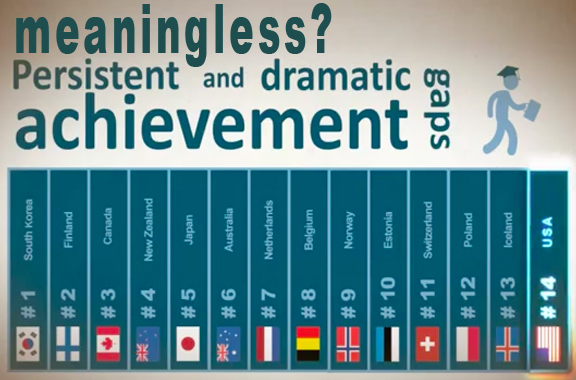Brookings Researcher Exposes Human Rights Violation Under Shanghai PISA Scores
For two weeks now when the conversation lags at dinner, my husband has been asking, “Has anyone shown yet why the sponsors of the PISA test let China report the scores of particular schools and children in Shanghai as though they represent all the schools and children of Shanghai?” Every night I point out that international test scores aren’t that important. What really matters is if our society has the moral will to invest in the futures of all of its children. And every night he answers, “But still, I can’t believe the people at the Organization for Economic Cooperation and Development (OECD) are so shoddy in the procedures by which they supposedly guarantee that the PISA scores from nation to nation are comparable.” After this morning we can’t any longer fall back on that particular conversation.
In a new post on her blog, Tom Loveless on Shanghai: The Scores Are Rigged, and OECD Doesn’t Care, Diane Ravitch quotes extensively from an article posted yesterday on the website of the Brookings Institution, by Tom Loveless, Attention OECD-PISA: Your Silence on China Is Wrong.
Loveless points not only to problems with the international PISA comparisons but also to a major human rights catastrophe in China. I will (as Diane Ravitch does also) quote directly from Tom Loveless, because his words are profound:
Shanghai has a school system that excludes most migrant students, the children of families that have moved to the city from rural areas of China. And now for three years running, the OECD and PISA continue to promote a distorted picture of Shanghai’s school system by remaining silent on the plight of Chinese migrant children and what is one of the greatest human rights calamities

